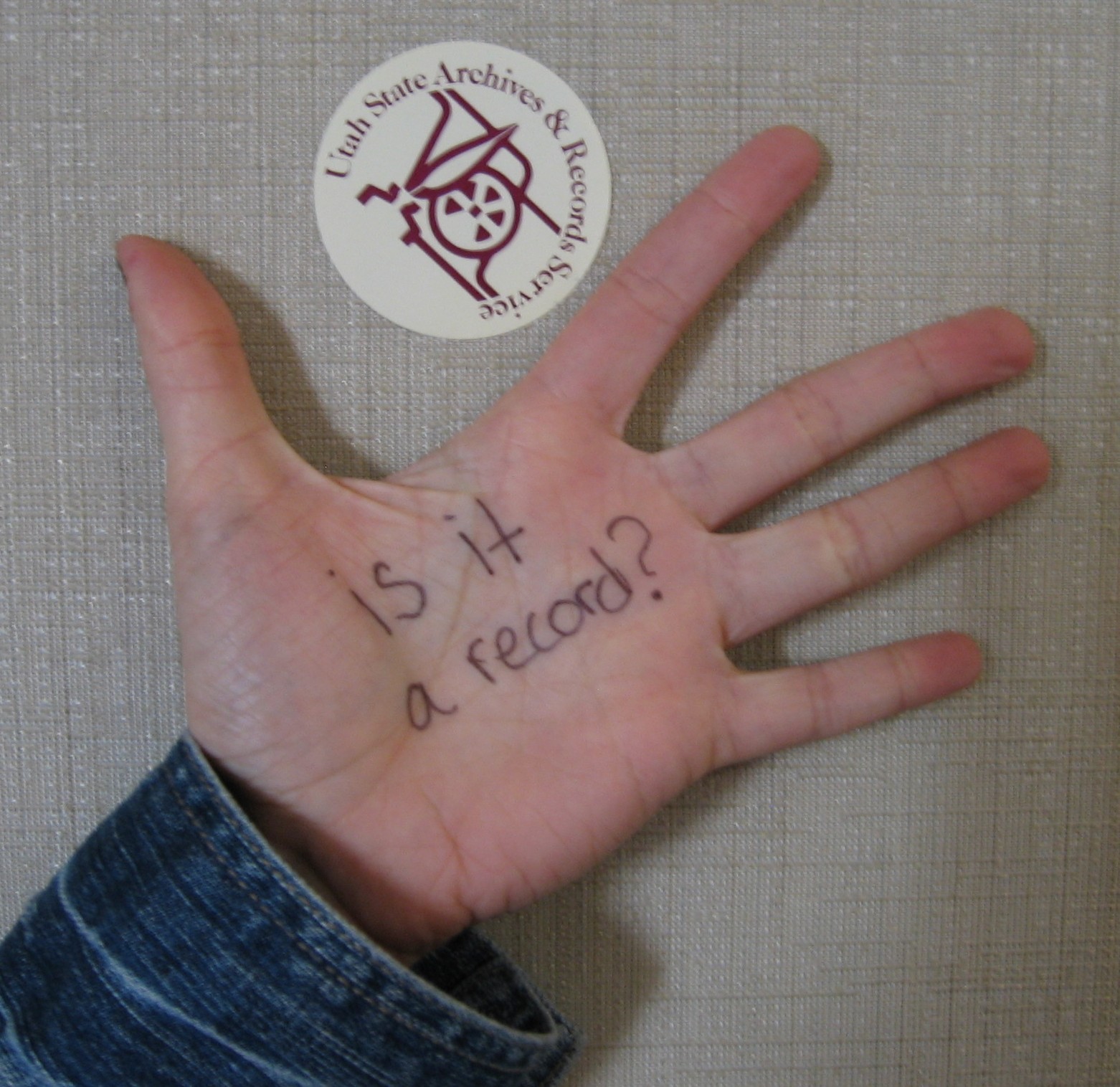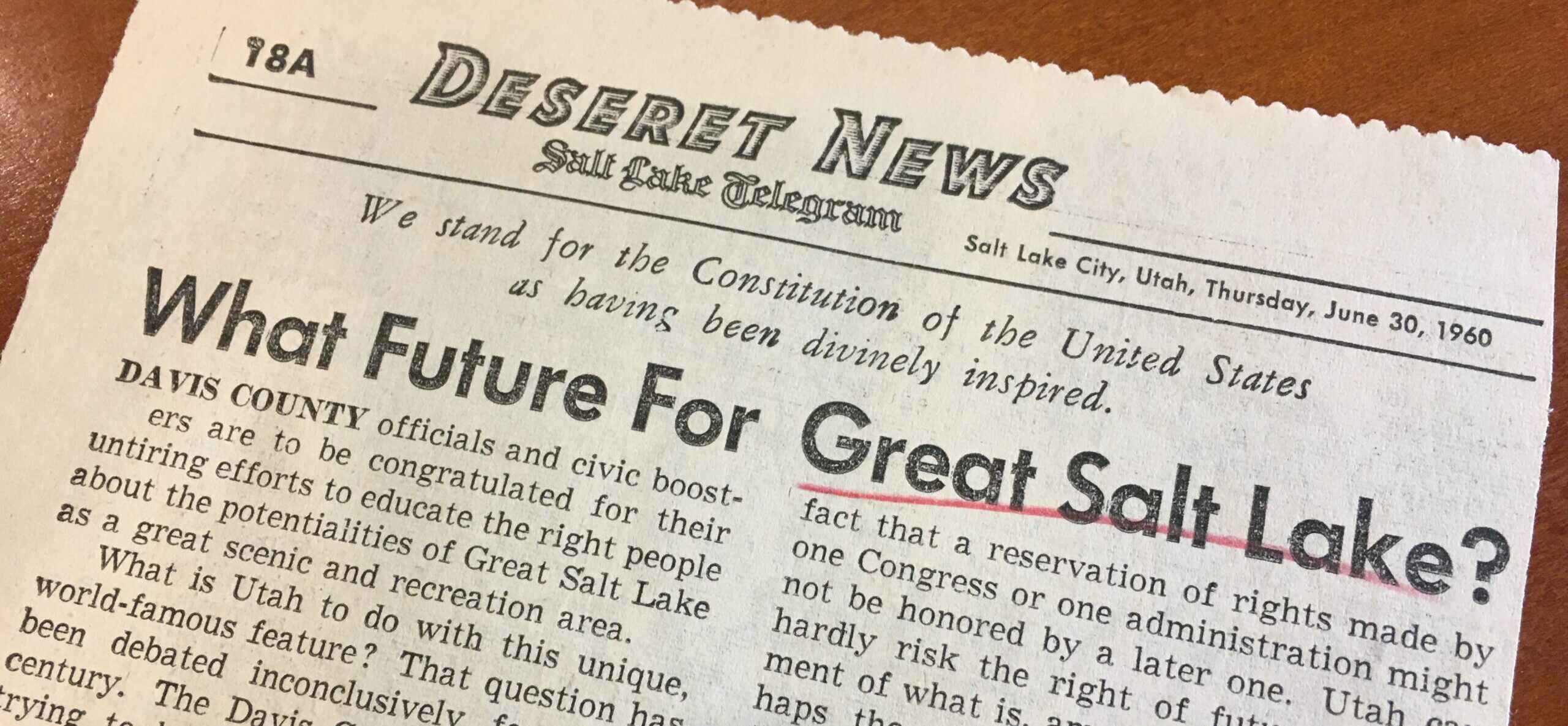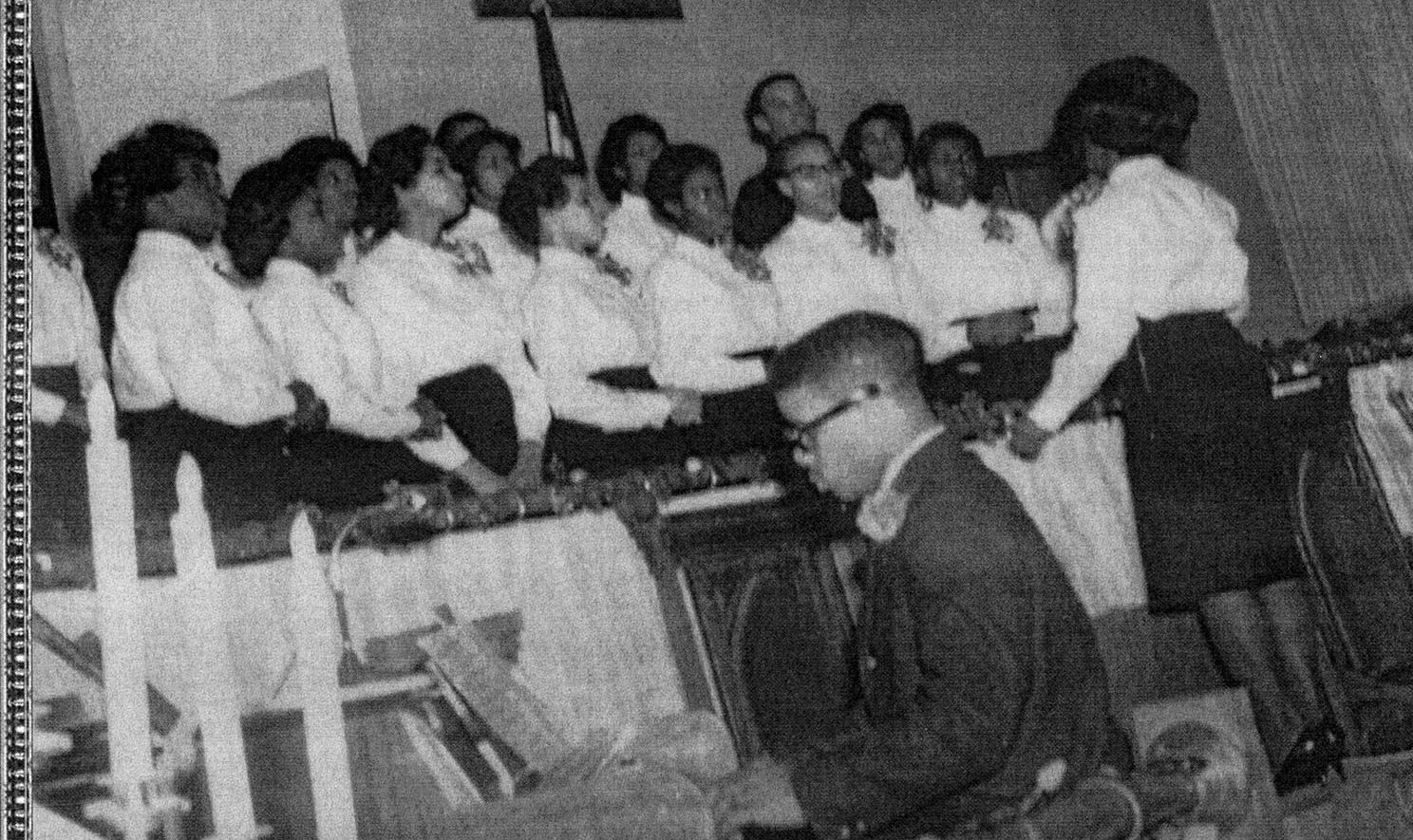
When a Note is a Record
 With more than 15 references to the term “personal” in the Government Records Access and Management Act (GRAMA), it comes as no surprise that Utah governmental agencies struggle to apply the term to the records managed by their office. GRAMA references: “personal use,” “personal privacy,” “personal notes,” and more. Yet, there is no definition provided by the law to guide state records officers in assessing the public’s right to access government records. What is a records officer to do?
With more than 15 references to the term “personal” in the Government Records Access and Management Act (GRAMA), it comes as no surprise that Utah governmental agencies struggle to apply the term to the records managed by their office. GRAMA references: “personal use,” “personal privacy,” “personal notes,” and more. Yet, there is no definition provided by the law to guide state records officers in assessing the public’s right to access government records. What is a records officer to do?
A quick review of the decisions and appeals issued by the State Records Committee (SRC) reveals that records officers have largely succeeded in interpreting GRAMA when they receive requests for records containing “personal” elements. Since 1992, only 11 of 238 cases have involved notes, both personal and business related. These statistics emphasize GRAMA’s underlying principle that it is the content of the record in question that matters, not the type of record or format of the record. In 2002, the SRC heard a case where the record requestor submitted a GRAMA request for “handwritten notes” included in a personnel file. The agency denied the request stating the handwritten notes were not records by definition.
GRAMA states, “record does not mean…a personal note or personal communication prepared or received by an employee or officer of a governmental entity in the employee’s or officer’s private capacity.”[1] Why were the handwritten notes released?
Upon review, the SRC determined that the content of the handwritten notes was not personal in nature and that the content related to an employee’s performance AND had been used as part of a disciplinary action against an employee. Due to these findings the handwritten notes were in fact records, were classified as private, and subject to release through a GRAMA request.
 How can records officers decide whether a note is personal or business related?
How can records officers decide whether a note is personal or business related?
First, they can review definitions provided by records management professionals or provided by other state’s laws (since Utah’s law does not define this term). The Society of American Archivists defines personal papers as “1. Documents created, acquired, or received by an individual in the course of his or her affairs and preserved in their original order (if such order exists). – 2. Nonofficial documents kept by an individual at a place of work.”[2] ARMA International defines a personal file as “material belonging to an individual that was not created or received in the conduct of business while in the employ of an organization.”[3] The United States Code defines the term personal records as “all documentary materials, or any reasonably segregable portion thereof, of a purely private or nonpublic character which do not relate to or have an effect upon the carrying out of the constitutional, statutory, or other official or ceremonial duties.”[4]
Second, review the content of the document in question. If the content relates in any way to business of the agency, it was not created in the individual’s personal capacity.
Third, review any documents in question with a supervisor to determine the nature of the content contained within the document. Just because the content is written on a Post-It® note does not mean the document is a “personal note.”

Fourth, do not include information of a personal nature with clearly business-related documents, i.e., personal events. “Lunch with Mom, 12:20” should be written on a personal calendar not a business calendar. Remember, any business related information maintained as part of a “personal file” is a record and the personal information becomes part of that record
Reviewing the content of the document is the best way to determine if the information is personal or business-related. Reviewing past SRC decisions and orders is an excellent resource for understanding GRAMA requests you have received and making an appropriate determination of the notes in hand.
State Records Committee Decisions and Orders: Notes
2011
DAN SCHROEDER, Petitioner, vs.
UTAH ATTORNEY GENERAL’S OFFICE, Respondent
2010
LINDA HOUSEKEEPER, Petitioner, vs.
UTAH COUNTY ATTORNEY’S OFFICE, Respondent
2009
MARVIN MELVILLE, Petitioner, vs.
SALT LAKE CITY CORPORATION, Respondent
WILLIAM JUSTESEN, Petitioner, vs.
MILLARD COUNTY, UTAH, Respondent
2007
TOM CORLEW, Petitioner, vs.
UTAH STATE TAX COMMISSION, Respondent
2006
Karl Dee Kay, Petitioner, vs.
Dept. of Corrections, Respondent
2003
ROBIN C. BOON, Appellant, vs.
UTAH TRANSIT AUTHORITY, Appellee
2001
MARY JEAN MEATS, Petitioner, vs.
LOGAN CITY, Respondent
2000
KRISTIN M. CAPPEL, Appellant, vs.
UNIVERSITY OF UTAH, Appellee
1999
CATHY CARTWRIGHT, Appellant, vs.
UTAH DEPARTMENT OF CORRECTIONS, Appellee
1998
GEORGE E. BROWN, JR., Appellant, vs.
AMERICAN FORK CITY, Appellee
[1] 63G‑2‑103(22)(b)(i)
[2] Personal Papers: http://www.archivists.org/glossary/term_details.asp?DefinitionKey=49
[3] Personal File: http://www.arma.org/standards/glossary/index.cfm?id_term=343
[4] This definition refers to the President’s papers but is useful in creating a benchmark within your agency’s office. United States Code.United States, Government Printing Office. Available online through the Legal Information Institute of the CornellUniversityLawSchoolat http://straylight.law.cornell.edu/uscode/.
Recent Posts

New Finding Aids at the Archives: April 2024

ARO Spotlight: Debbie Berry from the Division of Water Rights

Utah History Day 2024: Archival Research Winners

From Pews to Pixels: Weber State’s Stewart Library Digitizes New Zion Baptist Church’s Legacy

New Finding Aids at the Archives: March 2024
Authors
Categories
- Digital Archives/
- Electronic Records/
- Finding Aids/
- General Retention Schedules/
- GRAMA/
- Guidelines/
- History/
- Legislative Updates/
- News and Events/
- Open Government/
- Records Access/
- Records Management/
- Records Officer Spotlights/
- Research/
- Research Guides/
- State Records Committee/
- Training/
- Uncategorized/
- Utah State Historical Records Advisory Board/